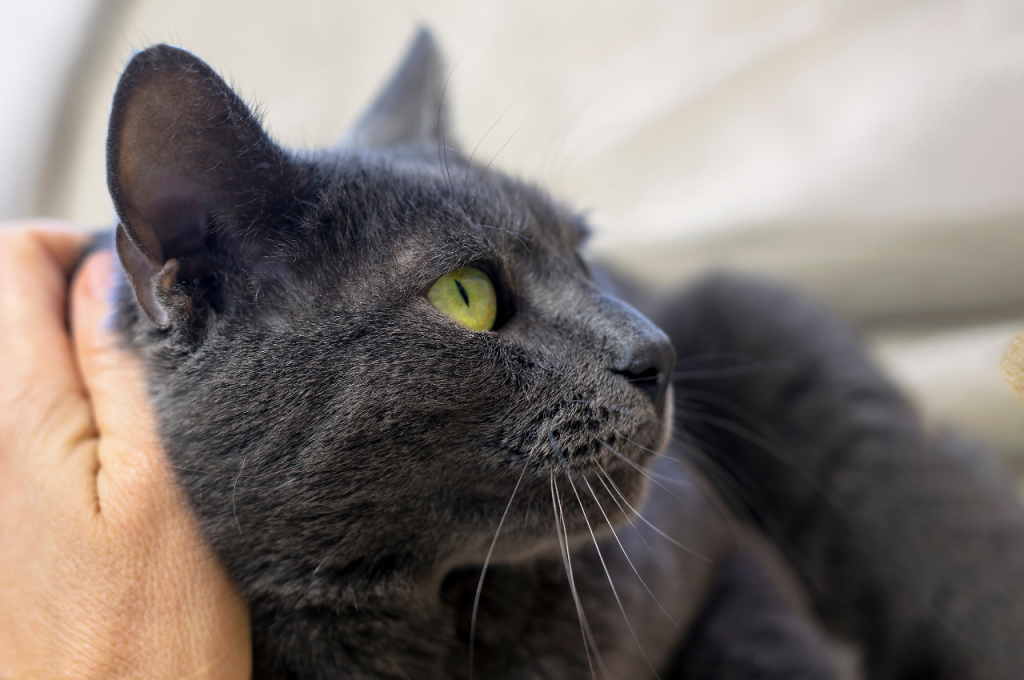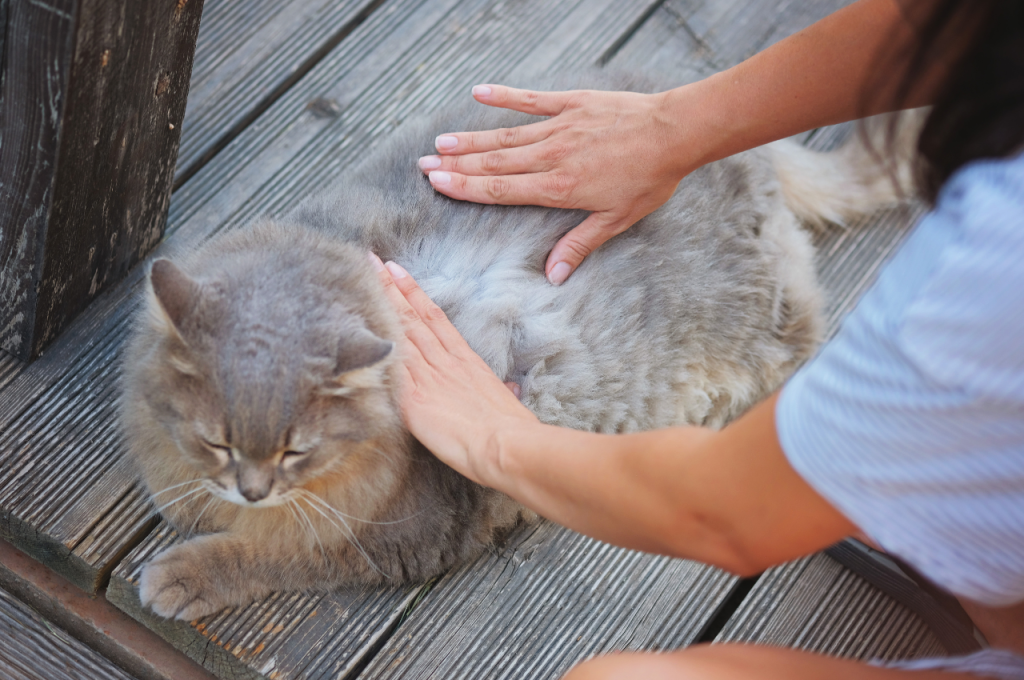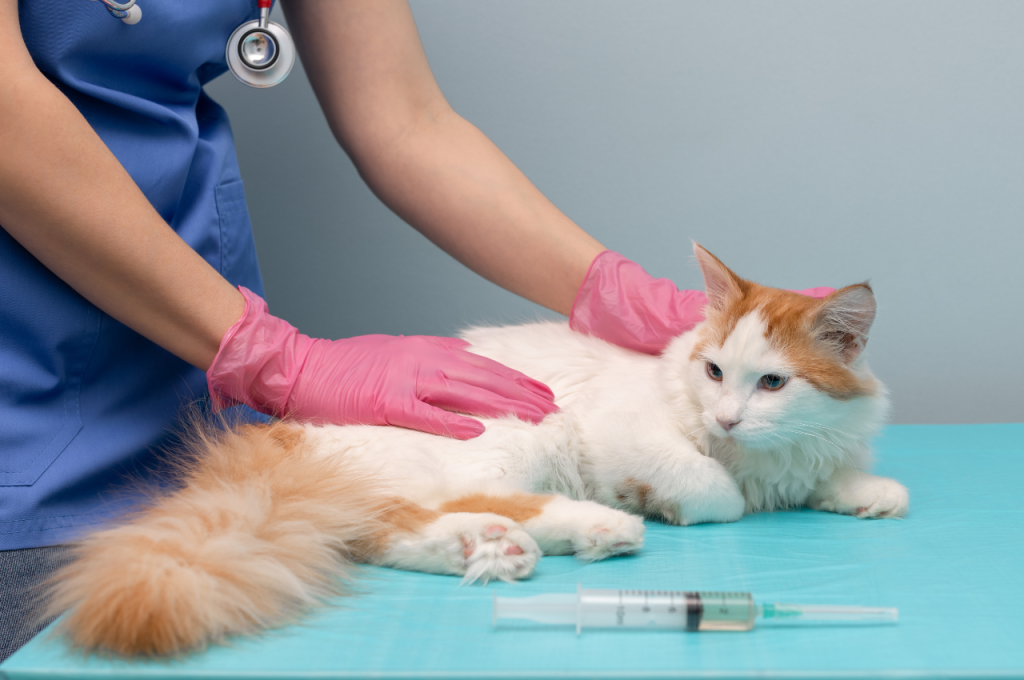To sedate a cat naturally, you can use calming herbs, pheromone sprays, or music therapy. These natural methods can help relax your cat without the need for medication, which may have potential side effects.
Calming herbs like chamomile and valerian root can be given in small doses after consulting with a veterinarian. Pheromone sprays mimic the natural calming pheromones produced by cats and can be sprayed in the cat’s environment. Music therapy involving soothing sounds or classical music can also create a calming atmosphere for your feline friend. By utilizing these natural techniques, you can help your cat feel more at ease in stressful situations.
Introduction to Natural Sedation for Cats
Cats can sometimes become anxious or stressed in certain situations, making it difficult to soothe them. In such cases, natural sedatives can be an effective and gentle way to calm your feline friend. In this article, we will explore the benefits of natural sedation for cats and provide insights into recognizing stress in cats.

Why Choose Natural Sedatives
Natural sedatives offer a gentle and holistic approach to calming your cat, without the use of harsh chemicals or medications. They can help alleviate anxiety and promote relaxation in a safe and non-invasive manner. This can be particularly beneficial for cats who may be sensitive to traditional sedatives or experience side effects from conventional medications.
Recognizing Stress in Cats
It’s essential to be attuned to the signs of stress in your cat, as this can help you address their anxiety more effectively. Common indicators of stress in cats include excessive grooming, hiding, decreased appetite, and aggressive behavior. By recognizing these signs, you can take proactive steps to alleviate their stress and provide a calming environment.
Herbal Remedies for Calming Cats
Herbal remedies can be an effective and natural way to calm an anxious or stressed cat. Many pet owners are turning to herbal remedies for their calming properties, as they can help to soothe a cat’s nerves without the need for harsh chemicals or medications. When it comes to calming cats naturally, herbal remedies such as Valerian Root and Chamomile can be particularly beneficial. Let’s explore the benefits of these herbal remedies for feline anxiety.
Valerian Root Benefits
Valerian root, a herb native to Europe and Asia, has been used for centuries as a natural sedative and anxiety reliever for both humans and animals. Valerian root can help to calm an anxious cat, reduce stress, and promote relaxation. It is available in various forms, including capsules, liquid extracts, and dried herbs. When using valerian root for cats, it’s essential to consult with a veterinarian to determine the appropriate dosage and form of administration.
Chamomile for Feline Anxiety
Chamomile, a gentle herb known for its calming properties, can also be beneficial for cats experiencing anxiety or stress. Chamomile can help to relax the nervous system, reduce irritability, and promote better sleep. It can be administered to cats in the form of tea, tincture, or as an ingredient in calming treats specifically formulated for feline anxiety. As with any herbal remedy, it’s important to seek advice from a veterinarian before giving chamomile to your cat.
Aromatherapy for Feline Relaxation
Aromatherapy can be an effective method for naturally sedating and calming your cat. Using cat-safe essential oils, such as lavender or chamomile, can help reduce anxiety and promote relaxation. Always dilute essential oils in a diffuser or spray to avoid direct contact with your cat’s skin. Make sure the area is well-ventilated, and never force your cat into an environment where they are overwhelmed by the scent. Offering a calm, peaceful space paired with these natural remedies can help ease stress and create a soothing atmosphere for your cat. However, always consult a veterinarian before introducing aromatherapy to ensure it’s safe for your feline friend.
Lavender Oil and Its Calming Effects
Lavender oil has calming effects on cats due to its soothing aroma. When diffused, it helps reduce a cat’s stress and anxiety. This natural sedative can be used by adding a few drops to a diffuser or a cotton ball placed near the cat’s resting area.
Frankincense to Alleviate Cat Stress
Frankincense is known for its ability to alleviate stress in cats. Its aroma helps in promoting relaxation and easing anxiety. By adding a drop of frankincense oil to the cat’s bedding or using it in a diffuser, you can help your feline friend feel more at ease.
The Power of Pheromones
The power of pheromones offers a natural and gentle way to calm and sedate a cat. Products like pheromone diffusers and sprays mimic the calming signals that cats naturally produce, helping to reduce anxiety and stress. When a cat is exposed to these synthetic pheromones, they can feel more secure and relaxed in their environment. This method is particularly useful for situations like traveling, vet visits, or introducing new pets into the home. By using pheromones, you provide a safe and non-invasive way to help soothe your cat without resorting to medications.
Synthetic Feline Pheromones
Synthetic feline pheromones mimic natural calming signals.
- Helps reduce stress and anxiety in cats.
- Available in diffusers, sprays, and collars.
How to Use Pheromone Diffusers and Sprays
Place diffusers in rooms where your cat spends the most time.
- Ensure diffusers are plugged in 24/7 for continuous effect.
- Use sprays on bedding, crates, or carriers before travel.
Massage Techniques for Cats
Massage techniques can be used to help calm and sedate cats naturally. By gently massaging specific areas such as the head, neck, and shoulders, you can help your cat relax and reduce stress levels. This can also be beneficial for cats who suffer from anxiety or have trouble sleeping.

Massage Techniques for Cats can be an effective way to calm them down when they’re anxious or agitated. Feline massage is different from human massage, as it requires a gentle and soft touch. In this section, we’ll discuss the basics of feline massage, including pressure points to relieve anxiety.
Basics of Feline Massage
Before you start massaging your cat, make sure they’re in a relaxed state. You can do this by offering treats or playing with them. Then, find a quiet and comfortable place to start the massage. Begin by stroking your cat’s back with gentle movements from the neck down to the tail. Apply a light pressure while you stroke, but be careful not to press too hard. Gradually increase the pressure as you go along. Once your cat is relaxed, you can start massaging their muscles. Use circular motions and apply light pressure on their muscles. Start from the neck and move down to the shoulders, then the back, and down to the tail. Repeat this process several times.
Pressure Points to Relieve Anxiety
Feline massage can be used to relieve anxiety and stress in cats. You can achieve this by massaging pressure points on their body. Here are some pressure points you can use:
- The base of the ears: Gently rub the base of your cat’s ears with your fingers.
- The bridge of the nose: Use your index finger to apply gentle pressure on the bridge of your cat’s nose.
- The shoulders: Massage your cat’s shoulders with circular motions.
- The paw pads: Apply gentle pressure on your cat’s paw pads with your fingers.
Applying pressure on these points can help to calm your cat down and reduce their anxiety. Remember to be gentle and use a soft touch when massaging your cat. Feline massage can be a great way to bond with your cat while also providing them with relaxation and comfort.
Dietary Supplements for Serenity
Discover natural ways to calm your feline friend with dietary supplements for serenity. Easily sedate your cat without stress or hassle using safe and effective natural methods. Prioritize your pet’s well-being and create a peaceful environment at home.
Cats can be sensitive to changes in their environment, which can cause anxiety and stress. While sedation is sometimes necessary, there are natural ways to calm your cat. One of the most effective methods is through dietary supplements. These supplements can help stabilize your cat’s mood and promote relaxation. Here are two essential supplements that can help your cat feel more serene.
Omega-3 Fatty Acids for Mood Stabilization
Omega-3 fatty acids are essential fats that play a vital role in maintaining your cat’s health. These fatty acids have been found to be beneficial in reducing inflammation, improving brain function, and promoting heart health. In cats, omega-3 fatty acids have been shown to help stabilize mood and reduce anxiety. You can add these fatty acids to your cat’s diet by giving them fish oil supplements or incorporating fish into their diet. However, it’s essential to consult with your veterinarian before adding supplements to your cat’s diet.
Incorporating Tryptophan in Diet
Tryptophan is an essential amino acid that plays an important role in the production of serotonin. Serotonin is a neurotransmitter that regulates mood, appetite, and sleep. By incorporating tryptophan-rich foods into your cat’s diet, you can help promote relaxation and reduce anxiety. Foods that are high in tryptophan include turkey, chicken, fish, and eggs. You can also find tryptophan supplements for cats, but it’s crucial to speak with your veterinarian before adding any supplements to your cat’s diet.
In conclusion, dietary supplements can be an effective way to help calm your cat naturally. Omega-3 fatty acids and tryptophan are two essential supplements that can help stabilize mood and promote relaxation. However, it’s crucial to consult with your veterinarian before adding any supplements to your cat’s diet to ensure that they are safe and effective.
Creating a Calm Environment
Creating a calm environment is crucial when it comes to sedating a cat naturally. Cats are sensitive animals that respond well to their surroundings. By focusing on elements like safe spaces, routine, and familiarity, you can help relax your feline friend.
Importance of Safe Spaces
A cat’s safe space is their sanctuary, where they feel secure and comfortable. Ensure there are quiet areas in your home where your cat can retreat to when feeling stressed or anxious.
The Role of Routine and Familiarity
Cats thrive on routine and familiarity, as it provides them with a sense of stability and security. Stick to a consistent daily schedule and maintain familiar surroundings to help keep your cat calm.
When to Consult a Veterinarian
If your cat needs to be sedated, it is best to consult a veterinarian for guidance on natural sedation methods. Natural remedies like calming pheromones, herbal supplements, or gentle massage may help to relax your cat, but it’s important to seek professional advice to ensure safety and effectiveness.

Before trying any natural sedatives for your cat, it is important to determine the cause of their anxiety and whether it requires medical attention. Some signs of severe anxiety in cats include excessive grooming, aggression, loss of appetite, and avoidance behavior. If you notice any of these signs, it is recommended to consult a veterinarian immediately to rule out any underlying medical conditions. Once your cat has been examined, your veterinarian can provide you with professional advice on natural sedation methods that are safe and effective for your feline friend.
Recognizing Signs of Severe Anxiety
Cats can experience anxiety for a variety of reasons, including changes in their environment, separation anxiety, or fear of loud noises. If your cat is experiencing severe anxiety, it is important to recognize the signs so that you can provide them with the appropriate care. Some signs of severe anxiety in cats include excessive grooming, aggression, loss of appetite, and avoidance behavior. If you notice any of these signs, it is important to consult a veterinarian to determine the underlying cause of your cat’s anxiety.
Professional Advice on Natural Sedation
While there are many natural sedatives that can be used to calm your cat, it is important to seek professional advice from your veterinarian before trying any new methods. Your veterinarian can recommend natural sedatives that are safe and effective for your cat based on their individual needs. Some natural sedatives that may be recommended include chamomile, valerian root, and catnip. These sedatives can be given to your cat in various forms, such as tea, supplements, or essential oils. It is important to follow your veterinarian’s instructions carefully when administering natural sedatives to ensure your cat’s safety and well-being.
Conclusion
Sedating a cat naturally can be a safe and effective way to calm your feline companion. By following the tips and techniques mentioned in this blog post, you can create a soothing environment, use natural remedies, and provide proper care to help your cat relax.
Remember to consult with a veterinarian before trying any sedation methods and always prioritize your cat’s well-being. With patience and understanding, you can help your cat achieve a state of calmness naturally.
